The Murder in Gratz During the Militia Encampment, 1856
Posted By Norman Gasbarro on July 20, 2012
The above article describing the “fatal affair at Gratztown” appeared in the Philadelphia Public Ledger, 27 September 1856, described the death of George Hoffman Jr. at the annual military encampment at Gratz, Dauphin County, Pennsylvania. A more extensive article appeared in a Schuylkill County publication, the Farmers and Miners Journal on the same date. It was re-printed in the Gratz Historical Society Memories Book, Volume 2. A portion of the story from the Memories Book is presented below. Following the story, some additional comments are given.
The “Great Union Military Encampment” commencing on Tuesday last broke up yesterday morning (Friday) at 5 o’clock. We were present during part of the time and was much pleased at the harmony that prevailed, particularly among those directly connected with the military affairs. The town on the first two days seemed to be overflowing with visitors, and we will venture to say there has never been such an immense body of people in Gratztown before. Not withstanding the preparation made by the inhabitants, many could not secure accommodations – beds, blankets, etc were in heavy demand.
There were about eight companies, we think in attendance, which were well drilled, and presented a handsome appearance. Governor Pollock arrived there on Wednesday evening, and on Thursday reviewed the different companies, and delivered an appropriate address in his usual pleasant style. The Governor was much respected during his sojourn there, and his noble appearance and natural good humor did not fail to gain him many friends. Among other present were, Judge Murrey, Major Mumma, G. Knox, A. J. Herr, Hon. J. Kunkle, Hon. J. Casey, J. Clyde, Stephen Miller, J. R. Eby, and Sheriff Hoffman, who added honor to the occasion. A democratic meeting was held at the Buffington Hotel on Thursday evening, which was addressed by several eminent speakers. We must mention, although unnecessary for our readers at home, that Capt. Whiskey was present, who drilled and redrilled his men well. We never before witnessed such a fine display of the effects of rye and water combined. For want of room this week, we were compelled to give a rather condensed statement, but in our next we will show the particulars in full.
A sad affair took place Wednesday evening as follows:
MURDER – On Wednesday evening about dusk, Mr. George Hoffman Jr. of Gratztown, whilst in a crowd or passing along by the Public House of Mr. Loudenslager, was stabbed in the right side of the thorax, (or breast), between the fourth and fifth rib, and proved fatal in about 12 hours after the stab was made. We seen the corpse after an inquest had been held over the dead body about an hour, and it was heart-rendering to behold the amount of blood that had been wasted from the wound during the short time he had to live after receiving the fatal stab. It appears that medical aid had been promptly called, although all the effort to save the life and arrest the hemorrhage was made that could be done, by Dr. I. Schminkey, Dr. G. B. Weiser, and Dr. S. Steitz, who were all present, but soon pronounced his case fatal. Thus another fellow-mortal has been called from this stage of action, and caused a gloom to be spread over the place, which we are sorry to see, and we deeply sympathize with the bereaved parents, who are mournfully stricken by the loss of a son. The deceased, it appears had a wife, but at the time of his death, they were separated, yet she was present during his suffering and death, and it gave her a shock that time will not erase. But the worst is not told, soon the officers were sent in search of the persons suspected, and resulting in taking Mr. Elias Meck, a young man, and he was brought before the proper officers, and testified that Mr. Samuel Lantz told him he should take a certain dirk or knofe and use it. Mr. Meck was then retained until Mr. Lantz was brought by officers Bird and Buffington and was taken before Squire Loudenslager, between one and two o’clock and was heard by the parties, who commuted him to the county prison, there to await his trial. The council for the defendant was D. Mumma, Esq., and for the Commonwealth, A. J. Herr, Esq. A post-mortem examination was held on Thursday evening about 8 o’clock, over the dear body, by Dr. I. Schminkey, Dr. G. B. Weiser, Dr. John Wright, Dr. C. S. Weiser, and Dr. J. B. Hower. The result was that the deceased came to his death by receiving a mortal wound in the right breast, which entered the right upper part of the middle lobe of the lungs and penetrated through and entered the lower part of the upper lobe, and passed in about one inch in depth.
George Hoffman Jr. was the son of Squire George Hoffman of Gratz. Squire Hoffman and his son were direct descendants of Johann Peter Hoffman (1709-1797), pioneer settler of the Lykens Valley. No picture exists of George Jr., but his father’s picture has been previously published in Gratz histories.
George Hoffman Jr. was a member of the Gratztown Militia, the local group that was sponsoring the annual encampment. At the time, the Gratztown Militia was headed by Major Jonas Laudenslager.
The Secretary of the Gratztown Militia was Dr. Isaiah Schminky. He was also one of the attending physicians and a member of the inquest that determined the cause of death of George Hoffman Jr.
Gov. James Pollock (spelled “Pollack” in the article) was the 13th Governor of Pennsylvania, and served from 1855-1858. He made his home in Milton, Northumberland County, just north of the Lykens Valley. His attendance at the military encampment helped to recognize the importance of the annual encampment. Gov. Pollack was in office when the Penn State University received its charter, he was a strong promoter of the use of the telegraph (perhaps the most important communication method during the Civil War) and was an early personal friend of Abraham Lincoln, both having served in Congress together and both having lived in the same Washington boardinghouse during the 1840s.
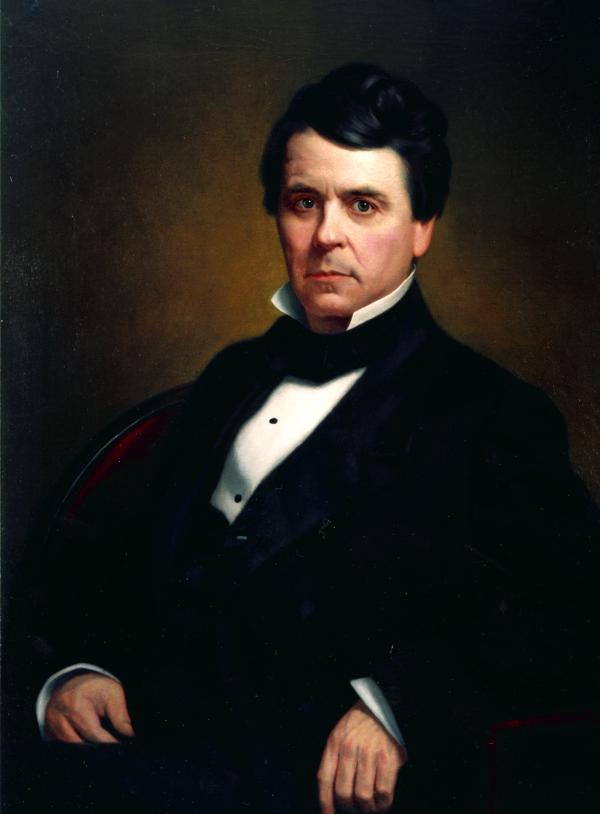
Gov. James Pollock (1810-1890)
The week after the encampment, the Farmers and Miners Journal summarized the happenings but didn’t mention the murder:
THE ENCAMPMENT
In our last issue we gave a condensed account of the Encampment at Gratztown, but did not give the companies due credit. The Washington Company of this place, made quite an imposing appearance, their equipment and dress displayed neatness and good taste, and the manner in which they were drilled proved credible to the Captain – Mr. Keen. The Fisherville Company also displayed to advantage, with Capt. McGarm at its head. The thorough manner in which this company was drilled proved the ability of their Captain. The whole of the companies, some nine in number, acquitted themselves in a manner becoming to the occasion. The Gratztown Light Horse Cavalry made also an imposing appearance. The Wiconisco Band added much to the enlivenment of the encampment, under the command of Dr. Ladd. The Harrisburg Bands were also in attendance, and discoursed some splendid music. The command of the camp was under Maj. Gen. William H. Keim, of Reading, assisted by his Aid-de-Camps, Maj. James Freeland, Co. G.A.C. Sieler, and Maj. J.G. Herr. Brig. Gen. E. C. Williams was also present with his aid-de-Camp Maj. William A. Delaney. The Companies were inspected by Brig. Inspector John Wright, who expressed himself highly pleased with their proficiency of drill and soldier-like appearance. The number of people in attendance was very large, as is common on such occasions and the public houses were crowded to excess, both at the table and at the bar, but all whose patience “held out” had an opportunity in course of time to take a “snap.” The principal amusement on the ground was the hustle and hurry the eager seekers made in getting a car or seat on the “flying horse.” It was amusing to the spectators to behold the young gentry seated beside their “pretty fair maidens,” how the voracity of the car gave a “lean” to its occupants – so much so that it became necessary for one to hold the other by encircling the waist and bracing in opposite directions. This amusement took admirably for a change, as “variety is the spice of life.”
Maj. Gen. William H. Keim of Reading, Berks County, was later a Civil War General of Pennsylvania volunteers. He died of typhus while at Harrisburg in 1862.
——————————
For prior blog articles on the Gratztown Militia, click here.
The portrait of Gov. James Pollock is linked from the website of ExplorePAHistory.com. The portrait of Gen. William H. Keim is linked from Wikipedia. Other portraits are from the collection of the Project. The news clipping is from the on-line resources of the Free Library of Philadelphia. Memories Book No. 2 is available from the Gratz Historical Society.
 ;
;
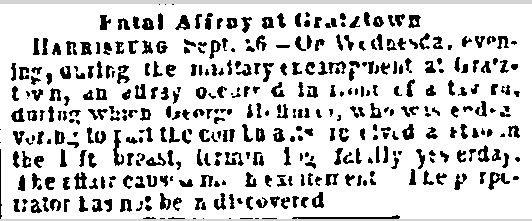
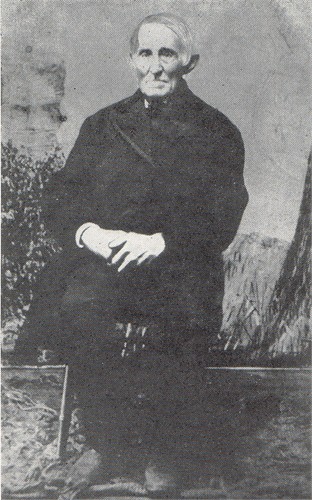
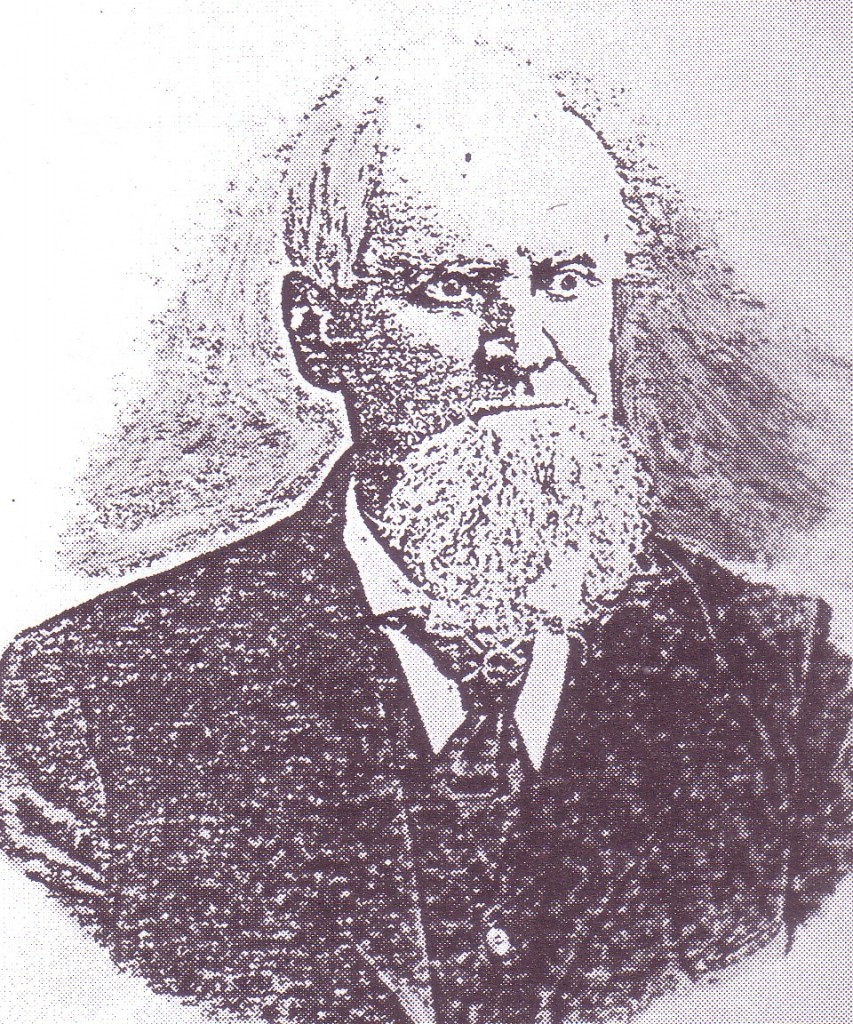
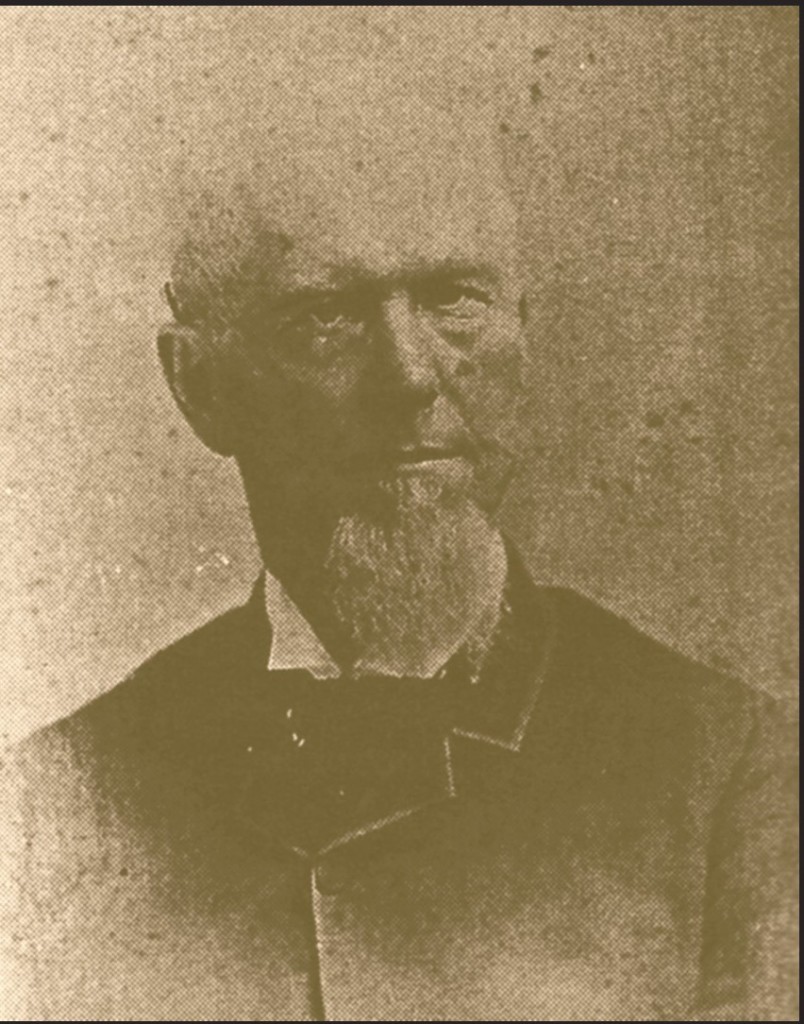


Comments